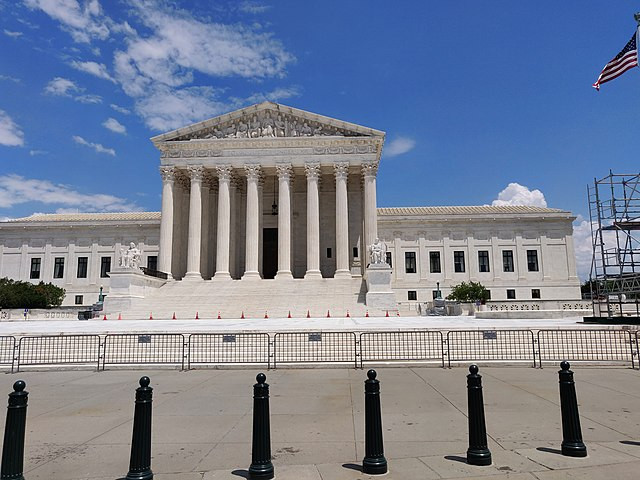The Supreme Court on Tuesday let stand a Texas statute requiring age verification on websites with pornographic content, dismissing an appeal from the pornography industry to block the law on the grounds of free speech infringement. The decision marks a significant moment in the ongoing debate over internet privacy and access to sexually explicit materials.
The Texas law, passed in 2023 and known as H.B. 1181, mandates that any website publishing substantial amounts of content harmful to minors must verify the age of its users. This entails users submitting personally identifying information to access such sites. The law's proponents argue that it is a necessary step to prevent minors from accessing explicit content, while critics claim it infringes on the privacy and free speech rights of adults.
The Free Speech Coalition, a trade group representing the adult entertainment industry, along with several companies, challenged the law, arguing that the requirement for adults to submit personal information over the internet to access adult content was overly intrusive. They contended that the law's broad application places unconstitutional restrictions on adults' free speech rights.
However, Texas Attorney General Ken Paxton defended the law, stating that it merely requires the pornography industry to take "commercially reasonable steps to ensure that those who access the material are adults." He emphasized the state's interest in protecting children from the potential harms of exposure to pornography.
The legal battle saw a federal judge initially find the provision problematic due to its broad impact on adults. However, the 5th U.S. Circuit Court of Appeals later ruled in favor of the state in a 2-1 vote, and the Supreme Court's refusal to intervene allows the appeals court's decision to stand.
Following the 5th Circuit's ruling, several major pornography platforms, including Pornhub, blocked access to their sites from users in Texas, citing concerns over the law's implications.
The Supreme Court provided no explanation for its decision, which is typical for rulings on its emergency docket. Notably, there were no dissents recorded in the case file.
This case has drawn comparisons to past legal precedents concerning the regulation of content deemed harmful to minors. In 1997, the Supreme Court invalidated provisions of a federal law aimed at protecting minors from indecent material online because it also imposed burdens on adult free speech. However, the 5th Circuit in reviewing the Texas law, referenced a 1968 precedent that upheld a New York law barring the distribution of obscene material to minors.
Legal experts and commentators note that the current ruling reflects an evolving judiciary perspective on the balance between protecting minors and preserving free speech in the digital age. The appeals court emphasized the difficulty of distinguishing between adult and minor internet users, suggesting that any effective measure to protect minors might inevitably affect adults.






